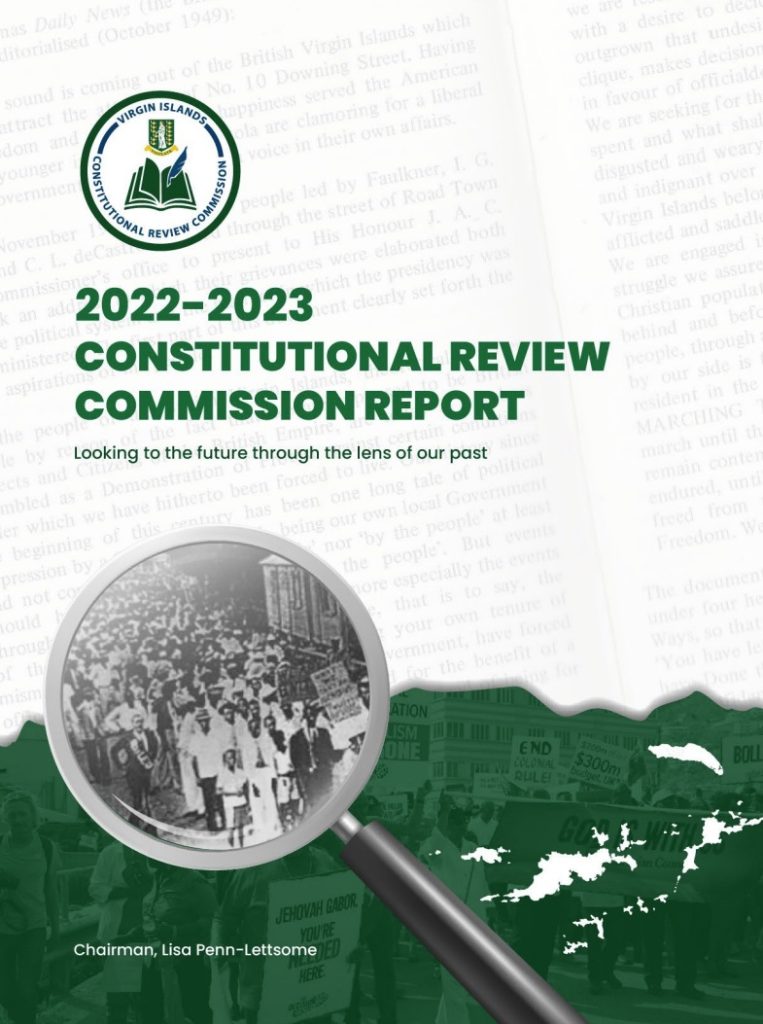The Constitutional Review Commission (CRC) Report has called for abolishing the role of junior ministers in the Virgin Islands.
The report states: “The position of Junior Minister should be abolished in order to promote an environment that supports clear separation between the Executive and the Legislature and availability of backbenchers as a necessary check and balance on the Executive.”
This recommendation stems from the CRC’s view that appointing sitting legislators as junior ministers blurs the lines between the executive and legislative branches. They argue backbench parliament members provide crucial oversight of the cabinet, which is undermined when those members also hold junior minister posts.
During the constitutional review process, the Commission encountered a spectrum of opinions regarding Junior Ministers, ranging from advocating for an increase in their number to calls for their complete abolition. The overarching concern was the undefined nature of the Junior Ministers’ roles within the current governmental structure.
Introduced through the Virgin Islands Constitution (Amendment) Order 2015, the position of Junior Minister allows for the appointment of up to two individuals from elected Members of the House of Assembly (HoA) to assist in ministerial functions related to economic development. Despite their constitutional standing as non-Cabinet members, the practical reality is that Junior Ministers function within the Executive arm of government.
Recognizing the varied concerns and opinions, the Commission advocated for a careful reconsideration of the necessity of the role of Junior Minister. The Commission also emphasized the need for increased structure, accountability, and clarity surrounding the role, taking into account concerns raised by the public and former Junior Ministers.
While recommending the abolition of Junior Minister positions, the Commission acknowledges that there are arguments in favor of retaining them. Some commissioners argue that properly utilizing Junior Ministers could positively impact succession planning and provide valuable political experience.
In Recommendation No. 2, the Commission advises the abolition of Junior Minister positions to enhance a clear separation between the Executive and Legislature, ensuring the availability of backbenchers as a vital check and balance on the Executive.
If the proposed introduction of a sixth Minister is not approved, the Commission recommends:
– No increase in the number of Junior Ministers, maintaining the maximum at two.
– Clarification of the role of Junior Ministers, with the understanding that such clarification should be included in the Ministerial Code of Conduct.

